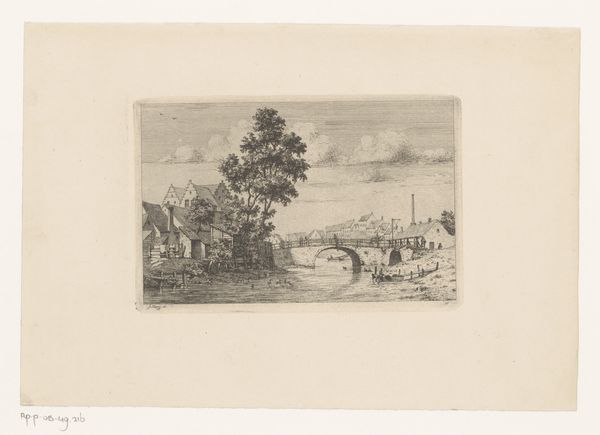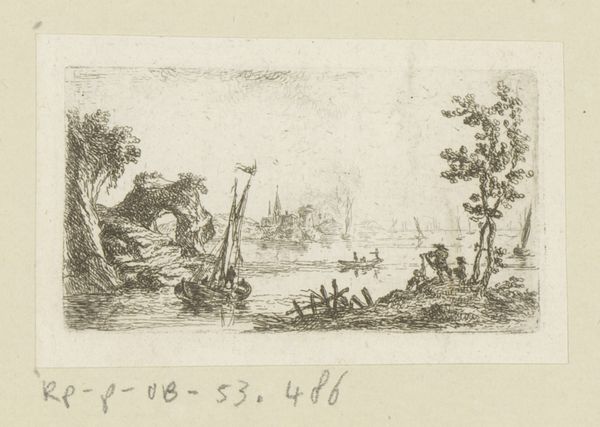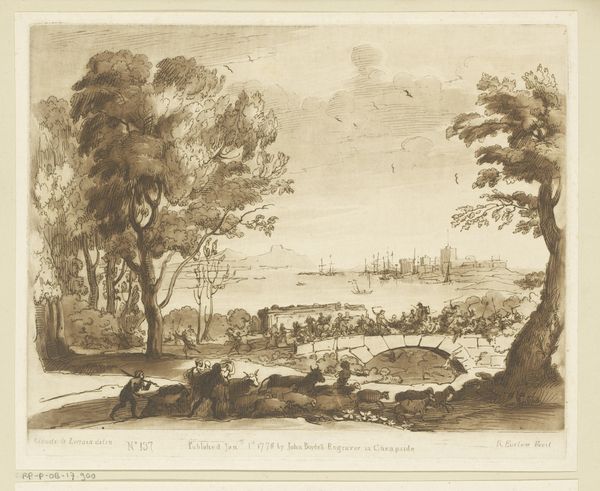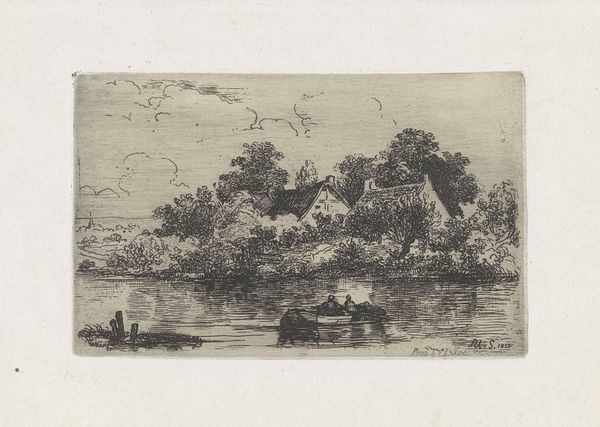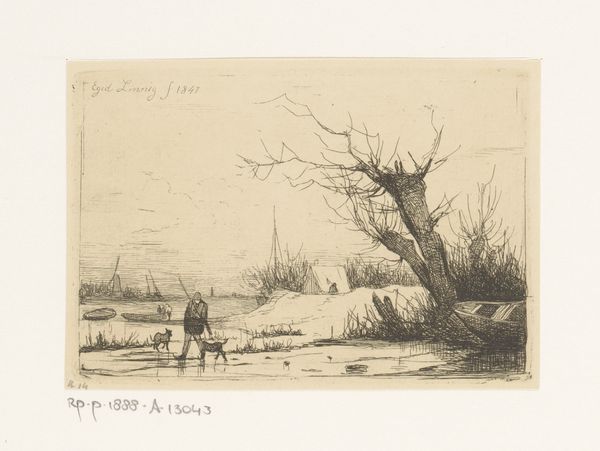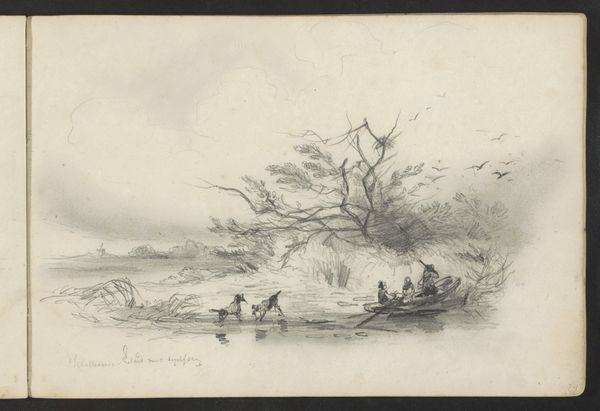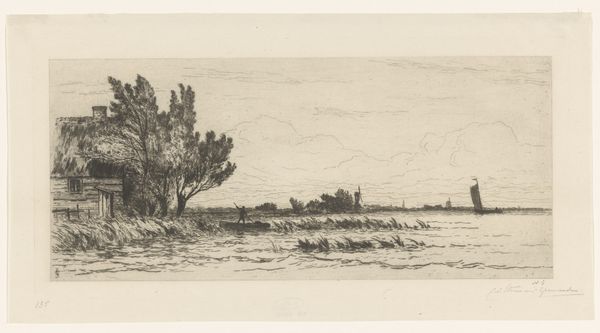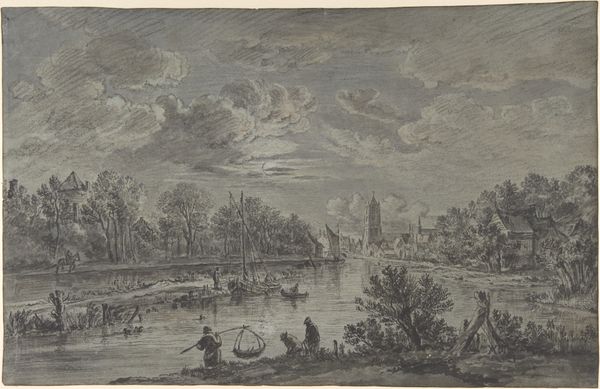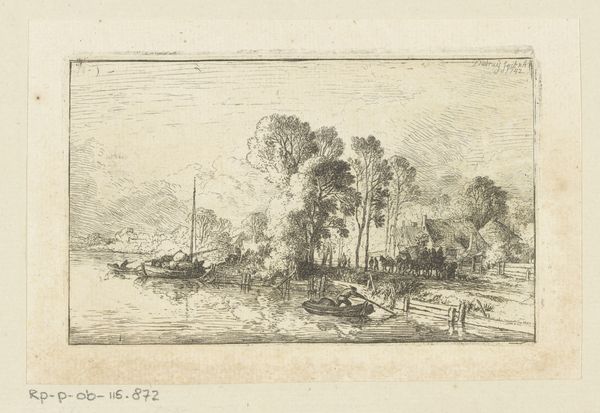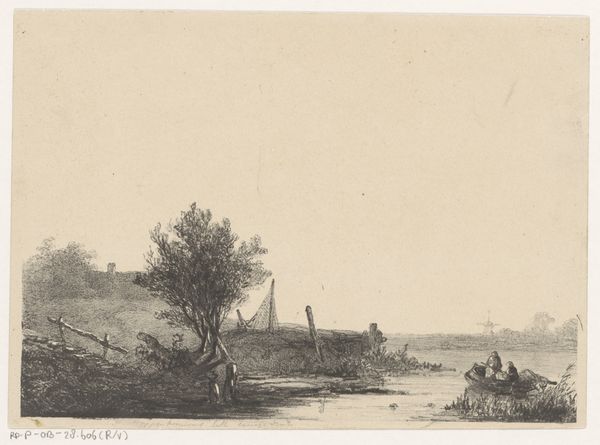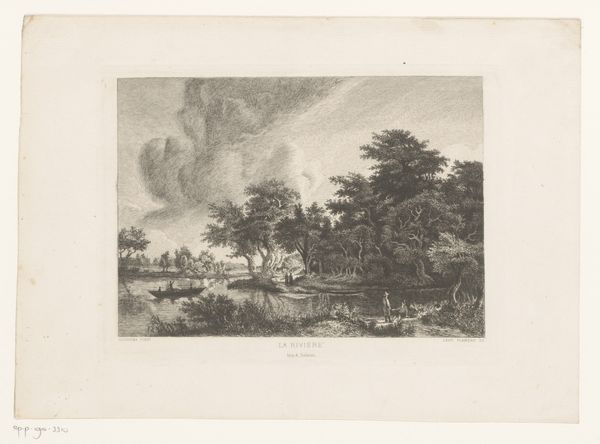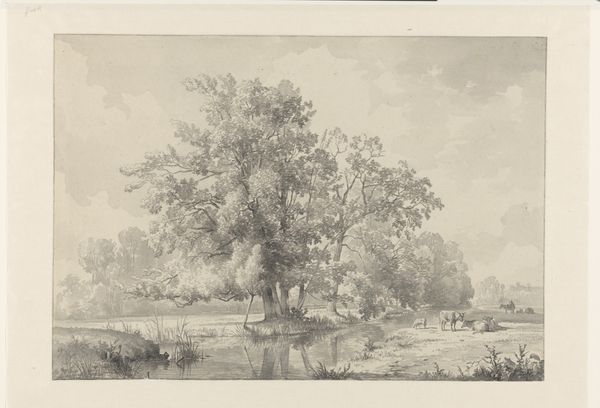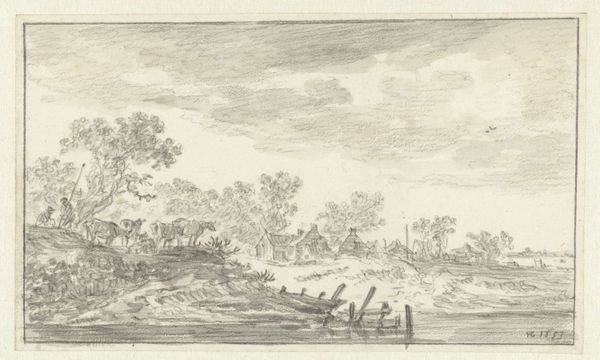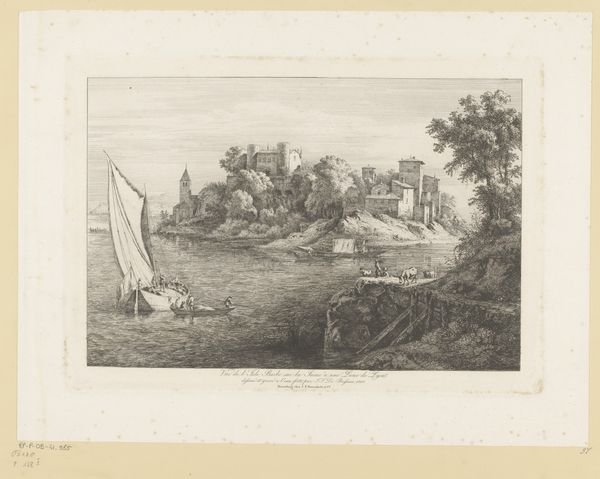
print, etching
# print
#
etching
#
landscape
#
river
#
etching
#
romanticism
Dimensions: height 87 mm, width 113 mm
Copyright: Rijks Museum: Open Domain
Jean Théodore Joseph Linnig etched this tranquil river landscape, featuring willows near Deurne. Dominating the scene are the willows themselves, their weeping forms heavy with symbolic weight. Across cultures, the willow is often tied to mourning, loss, and sorrow, but it is also a potent symbol of resilience and adaptability, bending without breaking in the face of life’s storms. Observe how Linnig has rendered their branches, reaching toward the water, mirroring the human figures gathered at the river’s edge. This mirroring effect speaks to a deeper, subconscious connection between humanity and nature. Just as the willow weeps, so too do humans experience profound emotions. This gesture of reaching, bending, and reflecting has appeared throughout art history, from ancient depictions of nymphs and dryads to more contemporary expressions of human fragility. It reminds us of the cyclical nature of life, death, and rebirth, a continuous flow of emotional experience.
Comments
No comments
Be the first to comment and join the conversation on the ultimate creative platform.
